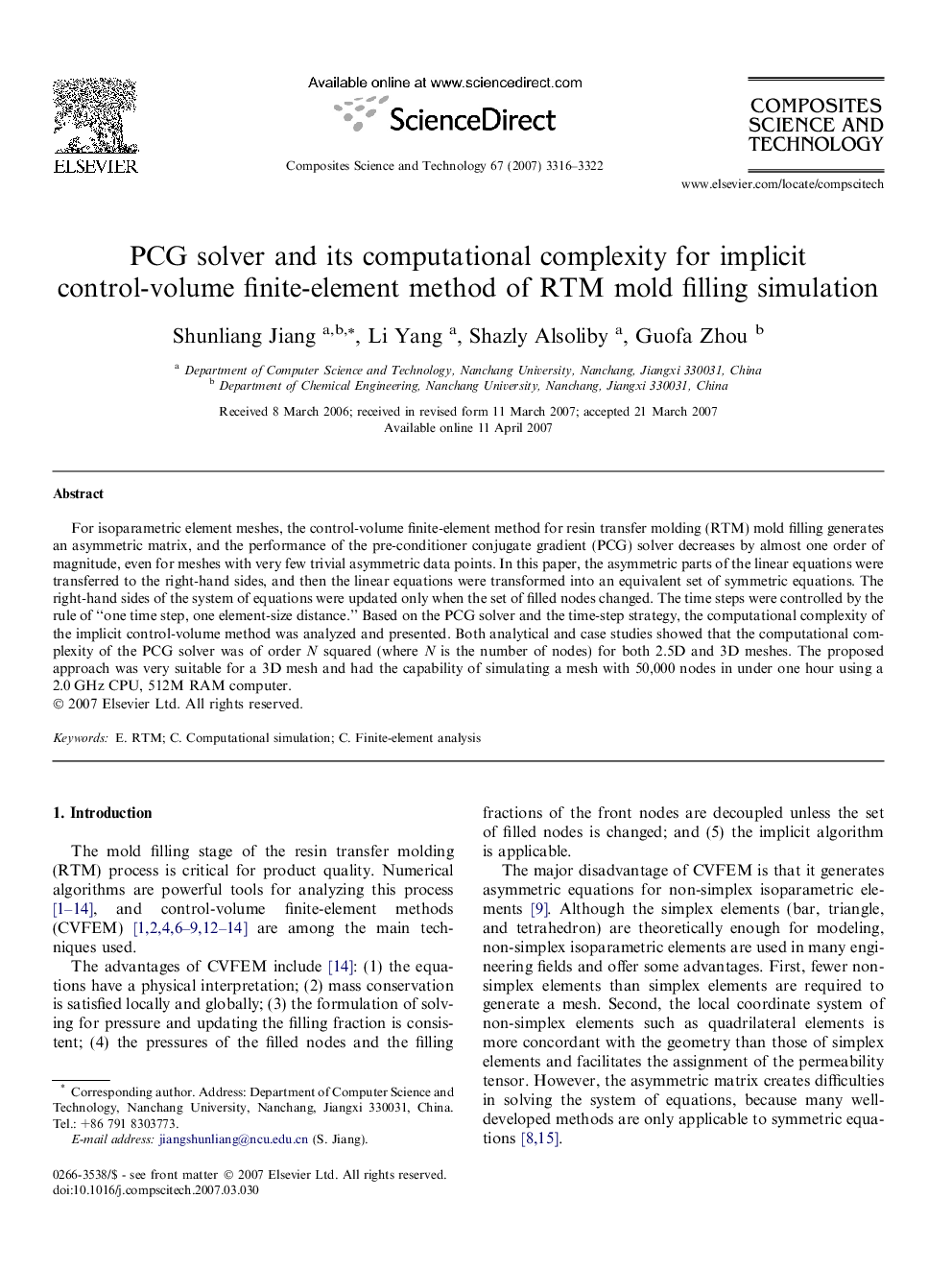| Article ID | Journal | Published Year | Pages | File Type |
|---|---|---|---|---|
| 821694 | Composites Science and Technology | 2007 | 7 Pages |
For isoparametric element meshes, the control-volume finite-element method for resin transfer molding (RTM) mold filling generates an asymmetric matrix, and the performance of the pre-conditioner conjugate gradient (PCG) solver decreases by almost one order of magnitude, even for meshes with very few trivial asymmetric data points. In this paper, the asymmetric parts of the linear equations were transferred to the right-hand sides, and then the linear equations were transformed into an equivalent set of symmetric equations. The right-hand sides of the system of equations were updated only when the set of filled nodes changed. The time steps were controlled by the rule of “one time step, one element-size distance.” Based on the PCG solver and the time-step strategy, the computational complexity of the implicit control-volume method was analyzed and presented. Both analytical and case studies showed that the computational complexity of the PCG solver was of order N squared (where N is the number of nodes) for both 2.5D and 3D meshes. The proposed approach was very suitable for a 3D mesh and had the capability of simulating a mesh with 50,000 nodes in under one hour using a 2.0 GHz CPU, 512M RAM computer.
